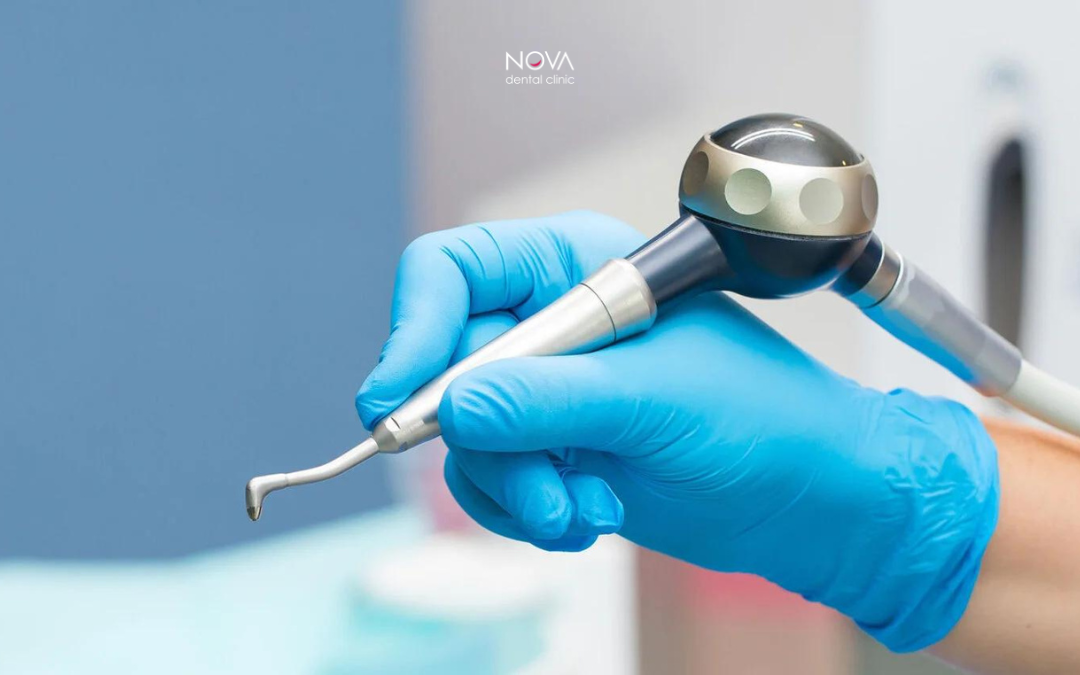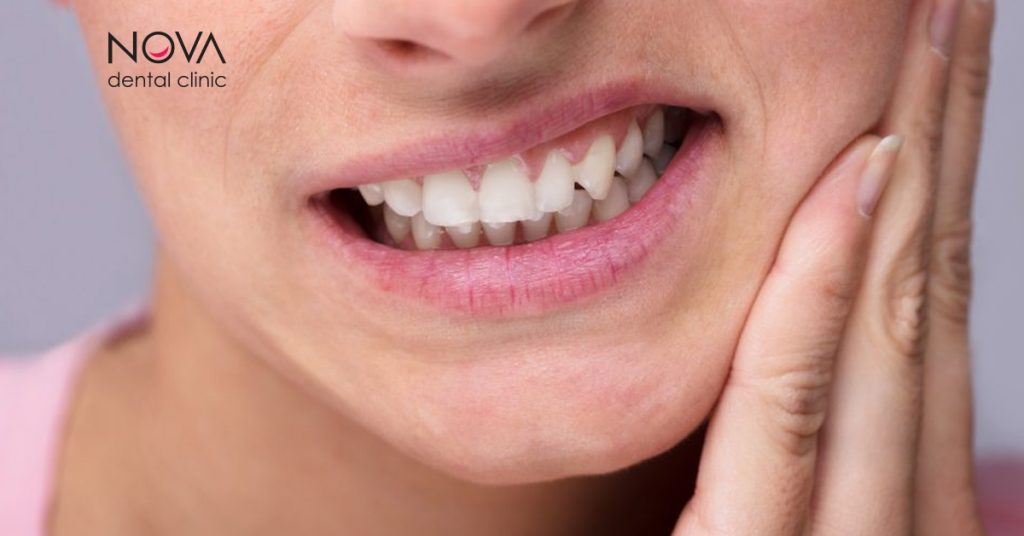
The word “stress” has become a part of our daily lives, frequently mentioned as the cause of many health issues. While it is often associated with bad moods, insomnia, and tension, stress can also affect your smile!
Clenching or grinding your teeth often occurs in response to fear, anger, or other unpleasant emotional triggers. This phenomenon, known as bruxism, can happen during sleep or while awake.
Bruxism, due to the immense forces exerted on the teeth and surrounding structures, can cause significant consequences that require specific treatment. Learn how to recognize the symptoms of bruxism, its causes and consequences, and how to prevent or treat it if it occurs, in today’s blog!
What causes bruxism?
Like many conditions or disorders, bruxism results from multiple factors:
- Repressed stress – Negative emotions such as anger and frustration can cause stress and lead to teeth grinding.
- Age – Bruxism is often seen in children but is usually temporary.
- Genetic predisposition – Half of the people who suffer from bruxism have a close family member with the same issue.
- Personality traits – Competitive, impulsive, or aggressive people are at a higher risk of developing bruxism.
- Certain medical conditions – Dementia, Parkinson’s disease, nightmares, epilepsy, or conditions like sleep apnea (temporary breathing interruptions) can lead to teeth grinding.
- Use of certain medications or substances – Bruxism can be a side effect of antidepressants or excessive consumption of caffeine, alcohol, or recreational drugs.
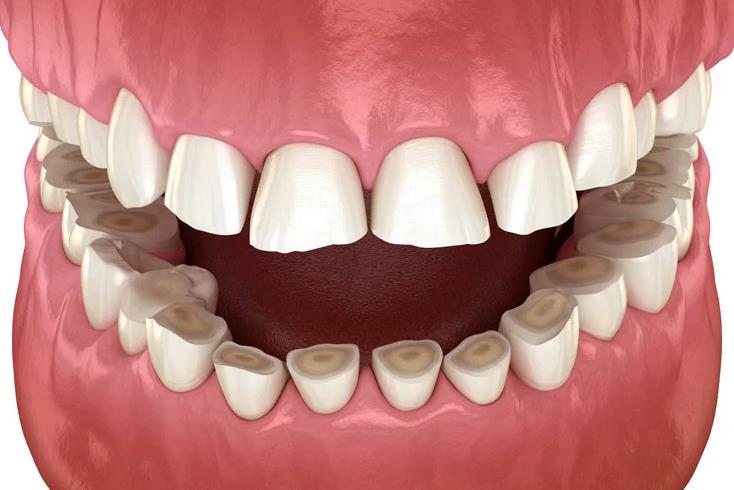
What are the symptoms of bruxism, and how is it diagnosed?
Teeth grinding does not occur continuously throughout the night but in short, repeated intervals. Most individuals are unaware of the issue until a partner or family member points it out.
The symptoms of bruxism arise from the intense tension caused by the forces of grinding, which can reach up to 110 kilograms of pressure!
People with bruxism may experience:
- Tension in the facial and neck muscles
- Jaw pain and difficulty opening or closing the mouth
- Dull headaches starting at the temples and ear pain
- Changes in the cheek lining caused by biting
- Sleep disturbances
- “Flat” teeth or worn tooth substance and fillings, even cracked enamel—this is often first noticed during a dental check-up
- Increased tooth sensitivity due to exposed dentin, leading to sensitivity to hot and cold
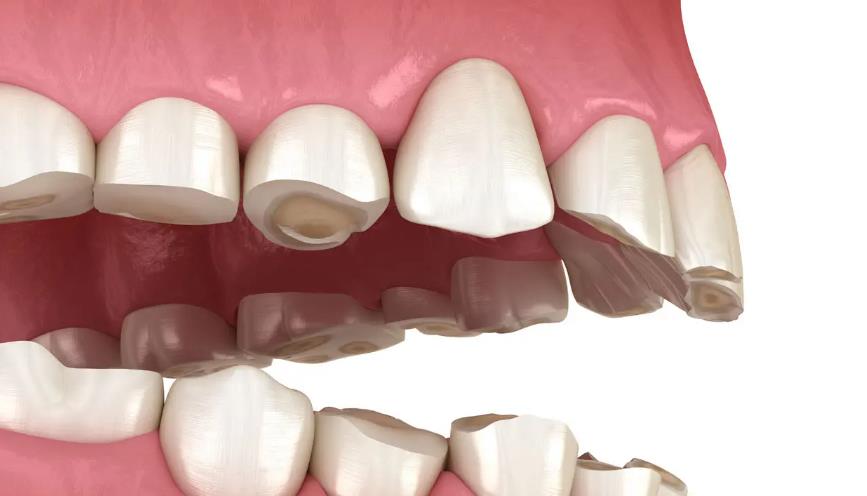
If you notice any of these symptoms, make sure to contact your dentist to assess which further therapeutic procedures you may need. Bruxism typically does not cause complications but, in certain cases, it can lead to severe tooth damage, intense headaches, facial and jaw pain, or temporomandibular joint disorders, which manifest as a clicking sound and a sensation of “popping” during mouth movements.
Bruxism therapy requires an individual approach, where the dentist evaluates the best course of action for treatment.
Therapeutic measures may include:
In-Clinic therapy:
- Custom bruxism splints – Individualized bruxism splints are made after taking impressions at the clinic. These splints are worn during sleep and are comfortable to use. They prevent further damage to the teeth and joints, as well as headaches and face and neck muscle pain. The duration of use is determined by your dentist.
- Dental crowns – For severe tooth damage, high sensitivity, and impaired chewing function, A possible solution may involve creating dental crowns to preserve the tooth in the mouth and restore its function.
- Medication – Muscle relaxants, sedatives, or even Botox injections to reduce jaw muscle spasms can help manage bruxism. All medication therapy must be prescribed and supervised by a physician!
Out-of-clinic therapy:
- Stress reduction – While it’s impossible to completely avoid stress, it’s essential to adopt measures to manage it. Cognitive-behavioral psychotherapy has proven effective for coping with stressful situations and negative emotions. Lifestyle changes such as physical activity, meditation, and regular sleep can also be valuable allies in combating stress.
- Identifying other causes – Treating underlying medical conditions under the supervision of a general practitioner or specialist may also help alleviate bruxism.
Recognizing the symptoms of bruxism and taking timely action can protect you from unpleasant consequences and ensure your teeth have a long lifespan.
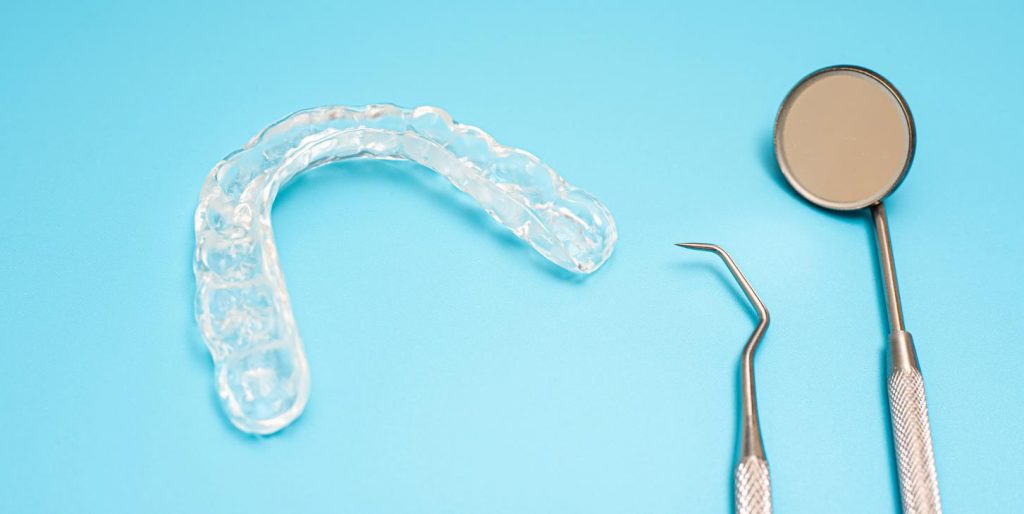
If your loved ones complain about being woken up by the sound of your teeth grinding at night, it’s time to visit Nova Dental Clinic. Let us determine the extent of your bruxism and work together to overcome it!










